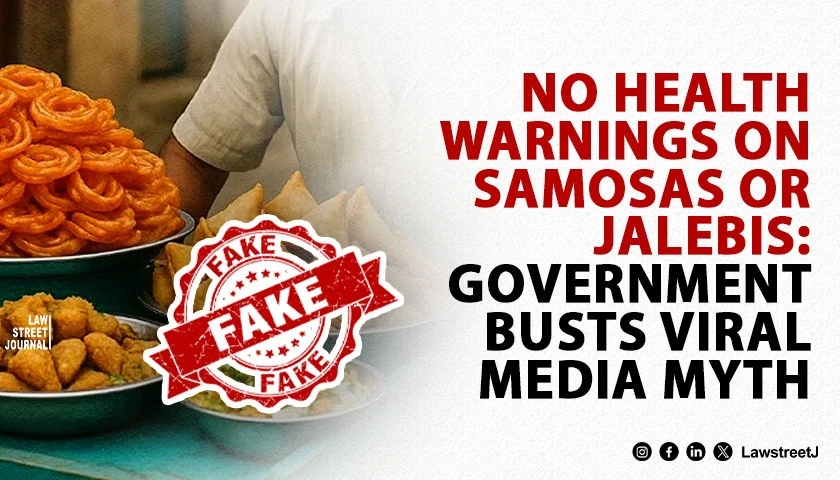New Delhi: In a swift clarification issued on Tuesday, the Press Information Bureau (PIB) of the Government of India dismissed circulating media reports claiming that the Union Health Ministry had issued warning labels against traditional Indian snacks such as samosas, jalebis, and laddoos. The PIB labelled these reports as “fake, misleading, and baseless.”
The misinformation stemmed from a misinterpretation of a recent Health Ministry advisory aimed at encouraging healthier food choices at workplaces. Contrary to viral headlines, the advisory makes no mention of warning labels on Indian snacks, nor does it advocate a ban or regulatory action against street food items that are integral to India’s culinary culture.
What the Advisory Actually Says
The Health Ministry’s advisory is part of a wellness initiative to combat rising levels of obesity and non-communicable diseases in India. It recommends the installation of informational boards in workplace lobbies, cafeterias, meeting rooms, and other common areas to raise awareness about the excessive consumption of sugar, salt, and unhealthy fats.
“These Boards are meant to serve as daily reminders on fighting obesity, the burden of which is sharply rising in the country,” the PIB statement clarified.
The initiative is educational — not regulatory — and applies to workplace settings, not food vendors, restaurants, or sweet shops.
Media Sensationalism and Public Misunderstanding
The controversy began after several media outlets and social media handles misquoted the advisory, suggesting that the government was cracking down on iconic Indian snacks. These misleading headlines quickly went viral, triggering public outrage and confusion over what many interpreted as an attack on traditional Indian food culture.
However, the PIB has now made it clear that no such directive exists and that the reports have been blown out of proportion without factual basis.
In an age of “cut-copy-paste” journalism, where speed often trumps accuracy, this incident underscores the urgent need for responsible reporting and fact verification. Traditional food is deeply woven into India’s cultural identity, and any attempt to regulate it — real or perceived — must be handled with journalistic integrity and factual clarity.
Follow LawStreet Journal for news that’s verified, not viral !













